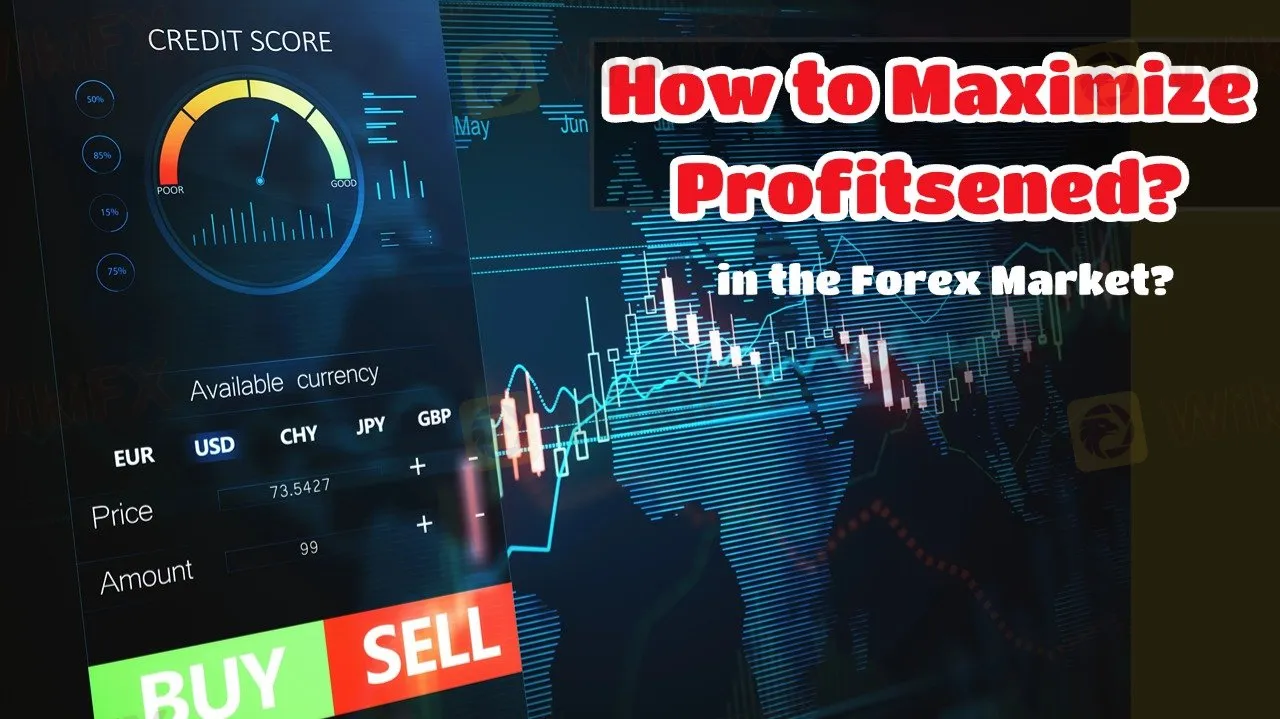简体中文
繁體中文
English
Pусский
日本語
ภาษาไทย
Tiếng Việt
Bahasa Indonesia
Español
हिन्दी
Filippiiniläinen
Français
Deutsch
Português
Türkçe
한국어
العربية
How to Maximize Profits in the Forex Market?
Abstract:The forex market is ever-changing—how to secure steady profits is the key question for every trader.

At its core, forex trading involves buying currencies expected to appreciate or selling currencies expected to depreciate, earning profits from exchange rate fluctuations. As the largest financial market globally, forex sees daily trading volumes reaching trillions of dollars.
It operates as a zero-sum game—one party profits while the other loses. Traders can go long (buy) or short (sell) to capitalize on both rising and falling markets. Unlike stocks or commodities, short-selling in forex carries no negative connotation, giving traders greater flexibility.
To achieve consistent profitability, it‘s crucial to follow prevailing trends and implement well-structured strategies. For example, shorting USD/CAD at 1.0950 and closing the position at 1.0900 would yield a 50-pip profit. Monitoring key global economic data and monetary policies—such as Australia’s high-yield government bonds, which often support AUD strength—can help traders make informed decisions. Combining technical and fundamental analysis while managing risk effectively is vital.
Traders should avoid emotional pitfalls like dwelling on “what could have been” and instead focus on disciplined, rational trading.
The forex market is highly volatile, with trends that can shift abruptly, leading to potential losses if mishandled. While opportunities abound, traders must always account for risks. Events like sudden U.S. dollar rebounds or shifts in global economic policy can adversely affect open positions.
Therefore, while chasing profits, traders must stay calm, exercise caution, stick to their strategies, and avoid impulsive decisions to ensure sustainable success.

Disclaimer:
The views in this article only represent the author's personal views, and do not constitute investment advice on this platform. This platform does not guarantee the accuracy, completeness and timeliness of the information in the article, and will not be liable for any loss caused by the use of or reliance on the information in the article.
Read more

Never Heard of Dynasty Trade? Here's Why You Should Be Worried
Have you heard this name before? No , it’s time you do because staying unaware could cost you. This platform is currently active in the forex trading and has been linked to several suspicious activities. Even if you’ve never dealt with it directly, there’s a chance it could reach out to you through ads, calls, messages, or social media. That’s why it’s important to know the red flags in advance.

WEEKLY SCAM BROKERS LIST IS OUT! Check it now
If you missed this week's fraud brokers list and are finding it difficult to track them one by one — don’t worry! We’ve brought together all the scam brokers you need to avoid, all in one place. Check this list now to stay alert and protect yourself from fraudulent brokers.

Catch the Latest Update on BotBro & Lavish Chaudhary
BotBro, an AI-based trading platform, became popular in India in 2024—but for negative reasons. Its founder, Lavish Chaudhary, who gained a huge following by promoting it heavily on social media. Since then, he has become well-known, but for many controversies. Let’s know the latest update about Botbro & Lavish Chaudhary.

Trading Other People’s Money | What Prop Firms Don’t Tell You
Proprietary (prop) trading firms have become increasingly popular. They give traders the chance to trade with larger amounts of money without risking their own savings. For many, this sounds like the perfect opportunity to grow faster and earn more. But while the benefits are appealing, there are also risks and hidden rules that traders must understand before joining a prop firm.
WikiFX Broker
Latest News
RM750 Million Lost to Investment Scams in Just Six Months
5 things to know before the Thursday open: Meme stock revival, Trump's Fed visit, Uber's gender feature
Why Octa Is the Ideal Broker for MetaTrader 4 & 5 Users
CNBC's Inside India newsletter: Leaving, but not letting go — India's wealthy move abroad, but stay invested
Moncler raises prices on tariffs, may postpone store openings if downturn worsens
Titan FX Adds WhatsApp and Telegram for Enhanced Support
Nestle flags further potential price hikes as tariffs, commodities weigh on margins
Stop Level Forex: How Does it Help Traders Prevail When Losses Mount?
eToro Launches Spot-Quoted Futures Trading in Spain
Titan FX Introduces Redesigned Client Cabinet for Enhanced Usability
Currency Calculator


